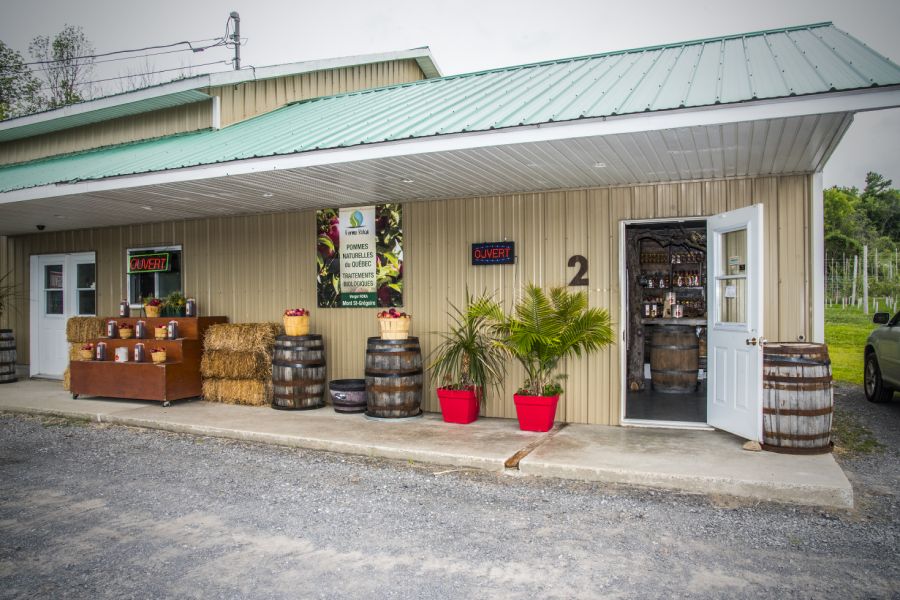À propos de nous
L’histoire
Les deux syllabes du nom Roka proviennent de Roumanie et de Kanata (ancien nom du Canada). Au début, en 2012, ce projet a été le fruit d’une collaboration entre un ingénieur agronome immigré de Roumanie, Dragos Iuroaia, et son partenaire canadien. Un an plus tard, le Roumain est resté le seul propriétaire des Domaines Roka, suite au départ de son partenaire pour Vancouver.Provenant d’une famille d’agronomes (son père étant le directeur du célèbre vignoble de Cotnari), Dragos Iuroaia a fait ses études à la Faculté d’agronomie de Iasi, grande ville située au nord de la Roumanie. Après avoir immigré au Québec, en 2005, il a enrichi son expérience en travaillant dans plusieurs fermes.

Dès le début, Dragos Iuroaia a décidé que son verger devait produire des pommes biologiques. « J’ai travaillé dans divers endroits et j’ai été étonné de la quantité de pesticides utilisés dans la culture des pommes », dit-il. «C’est pour ça que j’ai décidé d’offrir aux gens des pommes santé, sans aucun traitement chimique. Je savais que cela était difficile à faire, car les cultures biologiques sont très vulnérables devant les maladies et les insectes. C’est un combat permanent au quotidien. Je commence les travaux en hiver et dès que la température le permet je fais la taille des arbres. En avril, je prodigue des traitements contre des maladies spécifiques (comme la tavelure) et je couvre les pommes d’argile afin de les protéger contre les insectes. Je mets de la chaux sur les troncs et je les couvre avec une double couche de carton qui va collecter les œufs des insectes; en septembre je les enleve et les fait bruler.»
Il y a plusieurs méthodes naturelles que Dragos Iuroaia utilise afin de protéger son verger, y compris l’accueil de quelques familles de chauves-souris qui, comme on le sait, sont de grands amateurs d’insectes, et pouvant en consommer quelques milliers dans une seule nuit. À cela s’ajoutent des méthodes scientifiques expérimentales, comme l’utilisation de l’eau structurée, la musique ou l’électroculture. « J’ai mis deux récipients, l’un avec de l’eau structurée, l’autre avec de l’eau du robinet et j’ai observé que toutes mes poules sans exception ont bu seulement de l’eau structurée. Pour moi, c’est une preuve que l’eau structurée est meilleure. »
Il y a peu de vergers biologiques au Québec car il faut mener un éternel combat avec les insectes et les virus mais en disposant de peu d’armes. On ajoute à cela la difficulté d’obtenir la certification biologique : on ne peut l’obtenir qu’après trois années de culture biologique et on est soumis à chaque année à de nouvelles inspections. Sans oublier que le moindre écart par rapport aux règles peut entraîner une suspension du permis de trois ans ou plus.
Ce n’est pas facile, dit Dragos Iuroaia, mais ça vaut la peine : « Il n'y a pas de plus grande satisfaction que de voir tes pommiers gorgés de beaux fruits savoureux et de savoir que tu offriras aux gens des produits de grande qualité. De plus, la production biologique contribue à la protection de l’environnement et c’est un aspect qui me tient à cœur. »